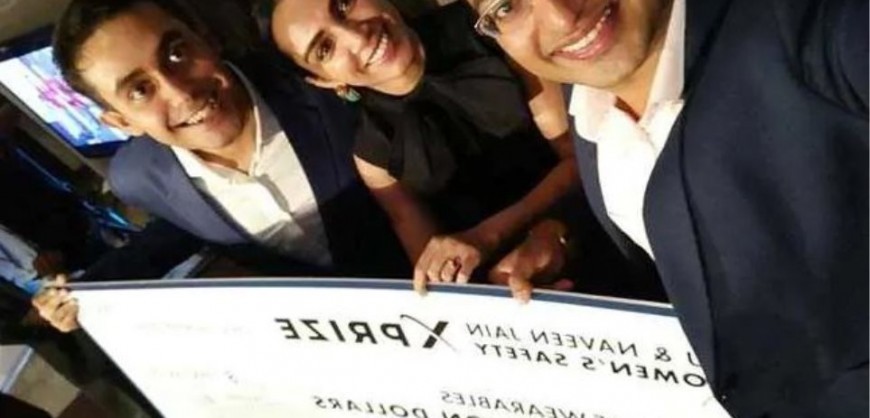Soon you, your daughter, sister or wife can wear a tiny hidden device that will call for help in case of trouble, even if there’s no smartphone coverage.
The winning team of the $1 million Anu & Naveen Jain Women’s Safety XPRIZE contest, announced Wednesday evening, hopes to use technology to solve the threat of sexual assault. The contest was launched in 2016, after a rash of violent gang rapes in India put an international spotlight on the issue.
The goal is “to get to a solution so we don’t discuss safety 10 years hence,” Manik Mehta, founder of the contest’s winner Leaf Wearables told USA TODAY. “It’s going to start with women and then move on to kids. And eventually we will spread it to all humanity, so it’s like polio, nobody has it anymore.”
Leaf was among five finalists in a contest that called for a discrete device that would alert rescue personnel in an emergency, provide a woman’s location during an attack, even in low connectivity situations, and cost less than $40.
The Leaf device can be worn as jewelry — a ring or a pendant — and works independently of a phone, which is the first thing perpetrators usually take away during an attack, Mehta said.
XPRIZE organizers brought developers to India to meet with potential investors and manufacturers to help them bring their product to market. They also met with community leaders, telecommunications companies and politicians in hopes of prompting infrastructure changes to support such a device. India, like most developing countries, does not have a fully-operational emergency response structure like the United States’ 911 system.
Mehta, who is from New Delhi, does not believe relying on his government to respond in a timely manner is the way to go. Instead, he envisions an Uber-like emergency response system, where people would sign up to respond to an alert in their neighborhood for a fee.
“We’d start with 10,000 people willing to do something if there’s an emergency,” he said. “It’s very possible for people to get paid to go out and help you.”
more at usatoday.com




































